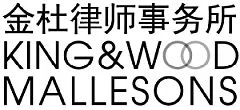- within Strategy, Employment and HR, Litigation and Mediation & Arbitration topic(s)
- with Senior Company Executives, HR and Inhouse Counsel
- in South America
- with readers working within the Banking & Credit, Healthcare and Media & Information industries
In late August 2010, it was reported in the press that at least 10 antitrust private actions have been heard in the courts in China (see Two years on, ten private antitrust actions). This article describes one of the cases – Huzhou Yiting Termite Prevention Service Co., Ltd vs. Huzhou Termite Prevention Research Institute (an alleged abuse of dominance case) – in detail.
Facts
The plaintiff was Huzhou Yiting Termite Prevention Service Co., Ltd (HY). HY was established in November 2008 as a corporation for the purpose of engaging in the business of supplying termite prevention services.
Pursuant to Article 6 of the Termite Prevention Management Rules for Urban Houses issued by the Ministry of Construction in 2004, corporations wishing to engage in the business of supplying termite prevention services must fulfil a number of requirements, including: possessing a registered capital of RMB 30 million or above; and employing full time professional and technical staff who are skilled in the fields of biological testing, drug testing and construction.
The Planning and Construction Bureau of Huzhou (the Bureau) was of the view that HY failed to meet the requirements pursuant to the Termite Prevention Management Rules for Urban Houses and thus did not approve HY's application to register as a business engaging in the supply of termite prevention services.
Prior to 2005, the Bureau owned an entity known as the Huzhou Termite Prevention Research Institute (the Research Institute). The Research Institute was engaged in the supply of termite prevention services. Post 2005, the Research Institute was privatized. However, post 2005, the Bureau still continued to have some involvement in the Research Institute's accounts and revenue. HY launched an administrative challenge and alleged that the Bureau's involvement in the Research Institute's accounts and revenue amounted to an illegal collection of fees against this conduct and won. HY won this administrative challenge.
On 25 November 2009, HY proceeded to file a suit (in the Hangzhou Intermediate People's Court) against Huzhou Termite Prevention Research Institute Co., Ltd (the Research Institute). The Research Institute is a private entity engaged in the supply of termite prevention services.(1) HY alleged that the Research Institute had abused their dominance, in breach of the Anti-Monopoly Law (AML) (during the period where the Bureau refused to register HY). It is unclear on what basis that HY has alleged that the Research Institute has abused its dominance – however, during the period where HY was unable to be registered as a legitimate termite prevention services company, the Research Institute was the only entity supplying this service in Huzhou city (Zhejiang province).
HY also alleged that the Research Institute had abused its dominance by blocking the former's access to the market for the supply of termite prevention services. HY demanded a total of approximately RMB 2.2 million in damages.
Court Process
On 25 November 2009, the Hangzhou Intermediate People's Court accepted the case. On 7 June 2010, the Hangzhou Intermediate People's Court issued a first instance judgment in which the court dismissed HY's claims. HY has appealed to the Zhejiang Higher People's Court – the case is currently pending.
Key findings
The following are the salient points raised in the court's first instance judgment:
- the court found that the relevant market was the supply of termite prevention services to houses and construction sites in Huzhou city (Zhejiang province);
- the court found that the Research Institute was dominant in the relevant market, as it was the only entity (during the period where HY was not registered) which engaged in the supply of termite prevention services to houses and construction sites in Huzhou city (Zhejiang province);
- the court was of the view that the Bureau's refusal to register HY as a legitimate termite prevention services provider was based on legitimate grounds pursuant to the Termite Prevention Management Rules for Urban Houses; and
- the court held that there was insufficient evidence to prove that there was any abusive conduct on the part of the Research Institute. The court held that there was insufficient evidence to prove that the Research Institute had the intention of restricting or eliminating competition in the relevant market.
Comments
This case is significant because it is the first case in which the court has found that an entity was dominant in a relevant market. However, it is not surprising that the Research Institute was found to be dominant in the relevant market – because the Research Institute was the only service provider in the relevant market (i.e. they possessed 100% market share of the relevant market).
We note that HY has chosen to bring an action against the Research Institute instead of bringing an action against the Bureau. If HY had decided to bring an action against the Bureau, they could have relied on Article 51 of the AML which states that administrative agencies are prohibited from abusing their administrative powers to exclude or restrict competition. However, Article 51 does not say explicitly that entities would be entitled to damages upon winning a case pursuant to that article.
(1) Until 2005, the Research Institute was owned by the Bureau (and was a public body). However post-2005, the Research Institute was privatized. However, post-2005, even after the Research Institute was privatized, invoices and documents issued by the Research Institute still bore the Bureau's seals and letter head. It is unclear why the Research Institute still made use of the Bureau's seals and letterheads.
The content of this article is intended to provide a general guide to the subject matter. Specialist advice should be sought about your specific circumstances.


